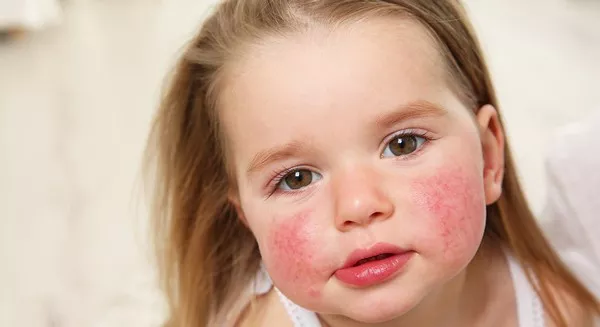Understanding Facial Allergies and Their Causes
Facial allergies can significantly impact an individual’s quality of life, causing discomfort, irritation, and self-consciousness. This article aims to provide comprehensive insights into facial allergies, including their causes, symptoms, and effective management strategies.
Facial allergies refer to allergic reactions that specifically affect the skin on the face. These allergies are typically triggered by various environmental factors, such as pollen, dust mites, pet dander, or certain chemicals in skincare products. Understanding the underlying causes and implementing appropriate measures is key to managing facial allergies effectively. This article will guide you through the signs and symptoms of facial allergies, along with evidence-based strategies to alleviate discomfort and prevent future flare-ups.
Recognizing Symptoms for Timely Intervention
The first step in managing facial allergies is recognizing the common signs and symptoms associated with these conditions. Being able to identify early warning signs can help individuals seek timely intervention and prevent the exacerbation of symptoms.
Symptoms of Facial Allergies:
1. Facial redness and inflammation
2. Itchy or sensitive skin
3. Dry or flaky patches
4. Swollen eyelids or under-eye bags
5. Rashes or hives
6. Watery or itchy eyes
7. Sneezing or a runny nose
Identifying Common Triggers
Understanding the triggers responsible for facial allergies is crucial in avoiding exposure and preventing future allergic reactions. The following are some common triggers known to cause facial allergies:
1. Pollen and outdoor allergens
2. Dust mites
3. Pet dander
4. Mold spores
5. Fragrances and chemicals in cosmetics
6. Harsh weather conditions
7. Certain foods and food additives
Preventive Measures to Minimize Facial Allergy Reactions
Preventing facial allergies involves a combination of lifestyle modifications, environmental controls, and skincare practices. Implementing these preventive measures can significantly reduce the frequency and severity of facial allergy reactions.
1. Create an allergen-free environment:
Regularly clean and vacuum your living space.
Use allergen-proof covers for pillows and mattresses.
Keep windows closed during high-pollen seasons.
Minimize exposure to pets if you are allergic to pet dander.
Control indoor humidity levels to prevent mold growth.
2. Practice proper skincare:
Choose hypoallergenic, fragrance-free skincare products.
Conduct patch tests before using new cosmetics or skincare products.
Cleanse your face gently with mild, non-irritating cleansers.
Moisturize regularly to maintain a healthy skin barrier.
3. Wear protective clothing and accessories:
Use wide-brimmed hats and sunglasses to shield your face from pollen and UV rays.
Cover your face with a scarf in cold weather to prevent dryness and irritation.
Over-the-Counter Treatments for Facial Allergies
When facial allergy symptoms arise, over-the-counter (OTC) treatments can provide temporary relief. The following OTC options can help manage facial allergies:
1. Antihistamines:
Oral antihistamines can alleviate itching and reduce redness.
Antihistamine eye drops can relieve eye-related allergy symptoms.
2. Topical corticosteroids:
Mild corticosteroid creams or ointments can soothe inflammation and itching.
3. Cold compresses:
Applying a cold compress to the affected areas can reduce swelling and provide relief.
Seeking Professional Help for Severe Facial Allergies
In cases where facial allergies are persistent, severe, or interfere with daily activities, it is important to consult a healthcare professional. They can conduct an allergy assessment and recommend appropriate treatment options, such as:
1. Prescription-strength medications:
Oral antihistamines
Topical corticosteroids
Immunomodulators
2. Allergen immunotherapy:
Allergy shots or sublingual tablets may be recommended for long-term management.
Conclusion
Managing facial allergies requires a comprehensive approach that includes understanding the triggers, implementing preventive measures, and seeking appropriate treatment when necessary. By following the strategies outlined in this article, individuals can effectively minimize facial allergy reactions, alleviate symptoms, and improve their overall quality of life. Remember, everyone’s allergies are unique, so it is essential to consult a healthcare professional for personalized advice and guidance in managing facial allergies.


